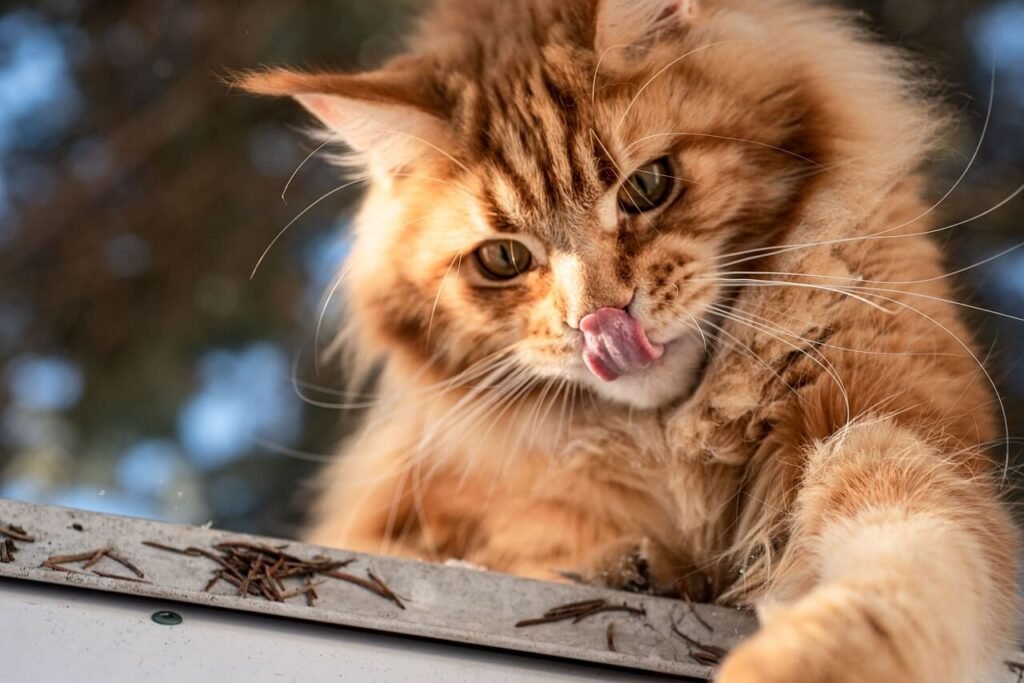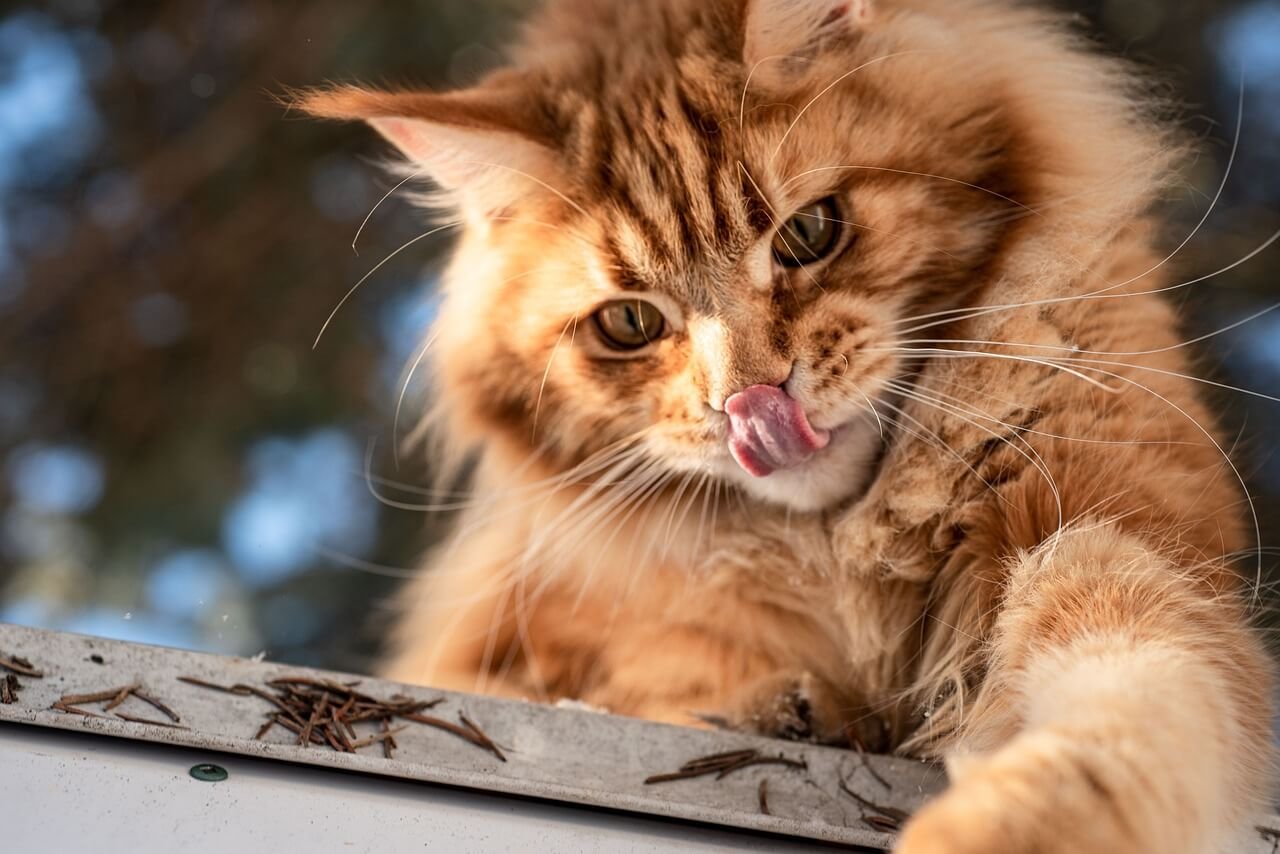Maine Coon Cat Size vs Domestic Cat: A Fascinating Comparison
When it comes to cat breeds, the Maine Coon stands out as a true giant among felines. Known for their impressive size, luxurious fur, and gentle personalities, Maine Coons are often compared to typical domestic cats. But just how different are they in terms of size? From weight and height to overall body structure, the differences between Maine Coons and domestic cats are striking yet fascinating. In this blog post, we’ll explore the unique characteristics that set Maine Coons apart from their smaller domestic counterparts. Whether you’re considering adopting a Maine Coon or simply curious about these majestic cats, this comparison will shed light on what makes them so special.
Key Differences in Size: Maine Coon vs Domestic Cat
The most noticeable difference between Maine Coons and domestic cats lies in their size. While domestic cats come in various shapes and sizes, Maine Coons consistently rank as one of the largest cat breeds. Let’s break down the key differences in their physical dimensions.
Weight:
Maine Coons typically weigh between 10-18 pounds (4.5-8 kg), while domestic cats usually range from 8-12 pounds (3.6-5.4 kg). Male Maine Coons can sometimes exceed 20 pounds (9 kg).Height:
Maine Coons stand taller than most domestic cats, with an average height of 10-16 inches (25-41 cm) at the shoulder, compared to 8-10 inches (20-25 cm) for domestic cats.Length:
Measured from nose to tail, Maine Coons can reach lengths of up to 40 inches (101 cm), whereas domestic cats are generally around 20-25 inches (51-64 cm) long.Body Structure:
Maine Coons have a muscular and rectangular build, giving them a sturdy appearance. Domestic cats tend to have a more compact and sleek frame.Tail Length:
The Maine Coon’s tail is exceptionally long and bushy, often measuring 12-16 inches (30-41 cm). Domestic cats have shorter, less fluffy tails in comparison.
These size differences highlight why Maine Coons are often referred to as “gentle giants” of the feline world. Their larger-than-life presence makes them truly unforgettable.
Growth Patterns: Maine Coon vs Domestic Cat
One of the most intriguing aspects of Maine Coons is their growth rate. Unlike domestic cats, which reach full size relatively quickly, Maine Coons take their time maturing. Here’s a closer look at how their growth patterns differ.
Maturity Timeline:
Maine Coons can take up to 3-5 years to reach their full size, while domestic cats are usually fully grown by 1-2 years of age.Kitten Stage:
Maine Coon kittens grow rapidly during their first year but continue to develop muscle mass and fur density over several years. Domestic kittens mature faster and stabilize earlier.Bone Development:
Maine Coons have slower bone development due to their large frames, requiring extra care during their early years. Domestic cats experience quicker skeletal maturation.Muscle Growth:
Maine Coons build muscle gradually, resulting in a lean yet powerful physique. Domestic cats tend to develop muscles more uniformly and at a faster pace.Coat Changes:
The Maine Coon’s thick, water-resistant coat evolves over time, becoming fuller and softer as they age. Domestic cats’ coats remain relatively consistent throughout their lives.
Understanding these growth patterns helps explain why Maine Coons require patience and attentive care during their developmental years. Their slow and steady growth adds to their charm and uniqueness.
Check this guide 👉Feral Cat vs Stray Cat: Best 7 Expert Tips!
Check this guide 👉Maine Coon Cat Care: Best 7 Expert Tips!
Check this guide 👉Norwegian Forest Cat vs Maine Coon: Best 7 Expert Tips!

Maine Coon Characteristics | Domestic Cat Characteristics |
|---|---|
Average weight: 10-18 lbs | Average weight: 8-12 lbs |
Height: 10-16 inches | Height: 8-10 inches |
Length: Up to 40 inches | Length: 20-25 inches |
Long, bushy tail | Shorter, less fluffy tail |
Takes 3-5 years to mature | Reaches maturity in 1-2 years |
Living with a Maine Coon vs a Domestic Cat
Deciding between a Maine Coon and a domestic cat involves considering their size-related needs and behaviors. Both breeds bring joy to their owners, but their differences can impact daily life. Here’s what to expect when living with each type of cat.
Space Requirements:
Maine Coons need more space to roam and play due to their larger size. Domestic cats adapt well to smaller living spaces like apartments.Furniture Fit:
Maine Coons may struggle to fit comfortably on small couches or chairs. Domestic cats are better suited for standard-sized furniture.Playtime Energy:
Maine Coons love interactive play and require plenty of toys and activities. Domestic cats are content with simpler forms of entertainment.Feeding Needs:
Maine Coons consume more food to support their larger bodies and higher energy levels. Domestic cats eat less and may be more prone to overfeeding if not monitored.Litter Box Size:
Maine Coons need larger litter boxes to accommodate their size. Domestic cats are comfortable with standard-sized litter boxes.
Living with either breed has its rewards, but understanding their differing needs ensures a harmonious household. Maine Coons thrive in spacious environments, while domestic cats excel in cozy settings.
Health Considerations: Maine Coon vs Domestic Cat
Size plays a role in the health considerations of both Maine Coons and domestic cats. While both breeds share common feline health issues, their unique traits require specific attention. Here’s what potential owners should know.
Joint Health:
Maine Coons are prone to hip dysplasia due to their large size. Domestic cats rarely face this issue.Heart Conditions:
Maine Coons have a higher risk of hypertrophic cardiomyopathy (HCM), a genetic heart condition. Regular vet check-ups are crucial.Obesity Risks:
Domestic cats are more likely to become overweight if inactive. Maine Coons burn more calories naturally but still need portion control.Dental Care:
Maine Coons’ larger mouths make dental care slightly easier, though regular brushing is essential for both breeds.Longevity:
Domestic cats generally live 12-15 years, while Maine Coons often enjoy lifespans of 12-18 years with proper care.
By addressing these health considerations, owners can ensure their furry companions lead happy, healthy lives regardless of their size.
Fun Facts About Maine Coons
Maine Coons are full of surprises, and their fun facts add to their allure. Here are some interesting tidbits about this beloved breed.
Largest Breed Record:
The world’s longest domestic cat was a Maine Coon named Stewie, measuring 48.5 inches (123 cm) from nose to tail.Polydactyl Trait:
Some Maine Coons are born with extra toes, a genetic trait known as polydactyly.Water Lovers:
Unlike many cats, Maine Coons enjoy playing in water thanks to their water-resistant coats.Historical Legends:
Folklore suggests Maine Coons descended from raccoons due to their tufted ears and bushy tails—a myth disproven by science.Versatile Hunters:
Bred for pest control, Maine Coons were once prized for their hunting skills on farms.
These fun facts showcase why Maine Coons are cherished by cat lovers worldwide.
Comparing Temperaments: Maine Coon vs Domestic Cat
While size is a major factor, temperament also sets Maine Coons and domestic cats apart. Here’s how their personalities differ.
Affection Levels:
Maine Coons are famously affectionate and enjoy being close to their humans. Domestic cats vary widely in their affection depending on individual personality.Social Behavior:
Maine Coons are highly social and get along well with children and other pets. Domestic cats may be more independent and reserved.Playfulness:
Maine Coons retain kitten-like playfulness throughout their lives. Domestic cats tend to settle into calmer routines as they age.Vocalization:
Maine Coons are known for their soft chirps and trills, creating a melodic communication style. Domestic cats meow more traditionally.Adaptability:
Domestic cats adapt quickly to new environments. Maine Coons prefer gradual changes and may take longer to adjust.
These temperament differences help potential owners decide which breed aligns best with their lifestyle.
Tips for Caring for a Large Cat Like a Maine Coon
Caring for a large cat like a Maine Coon requires thoughtful preparation. Here are some tips to ensure your big feline stays happy and healthy.
Provide Ample Space:
Ensure your home has enough room for climbing, stretching, and lounging to accommodate their size.Invest in Durable Furniture:
Opt for sturdy scratching posts and cat trees designed to support heavier weights.Monitor Food Portions:
Feed measured meals to prevent overeating and maintain a healthy weight.Regular Vet Visits:
Schedule annual check-ups to monitor joint health and screen for breed-specific conditions.Engage in Playtime:
Offer interactive toys and activities to keep their minds sharp and bodies active.
With proper care, a Maine Coon can thrive and bring endless joy to your home.
Frequently Asked Questions About Maine Coon Cat Size vs Domestic Cat
Are Maine Coons always bigger than domestic cats?
Yes, Maine Coons are consistently larger than most domestic cats in terms of weight, height, and length.
Do Maine Coons require special diets?
Due to their size and activity level, Maine Coons benefit from high-quality, protein-rich food tailored to their nutritional needs.
Can domestic cats and Maine Coons coexist peacefully?
Absolutely! With proper introductions and supervision, they can form strong bonds despite their size difference.
Why do Maine Coons grow so slowly?
Their large frames require extended periods for bones, muscles, and coats to fully develop.
Are Maine Coons good pets for families?
Yes, their friendly and sociable nature makes them excellent companions for households of all sizes.
In Summary: Embracing the Unique Qualities of Maine Coons and Domestic Cats
Whether you choose a Maine Coon or a domestic cat, both breeds offer incredible companionship and unique qualities. Maine Coons captivate with their majestic size and gentle demeanor, while domestic cats charm with their adaptability and playful spirit. Understanding their differences in size, growth patterns, and care requirements helps ensure a fulfilling relationship with your feline friend. Ultimately, the decision comes down to your lifestyle, preferences, and ability to meet their needs. No matter which breed you choose, the unconditional love and joy they bring into your life will make every moment worthwhile.
Dog Tapeworm Life Cycle: Best 7 Expert Tips! – Learn how tapeworms infect dogs, spot symptoms, and break the cycle with expert prevention strategies.
Anxious Cat Body Language: Best 7 Expert Tips! – Learn to spot signs of stress, understand triggers, and help your cat feel safe and relaxed.
Anxious Dog Body Language: Best 7 Expert Tips! – Learn to spot signs of anxiety, respond effectively, and help your dog feel safe and secure.
Is Breeding Dogs Bad? Best 7 Expert Tips! – Explore the ethics, benefits, and risks of dog breeding to make informed decisions for a better future.





